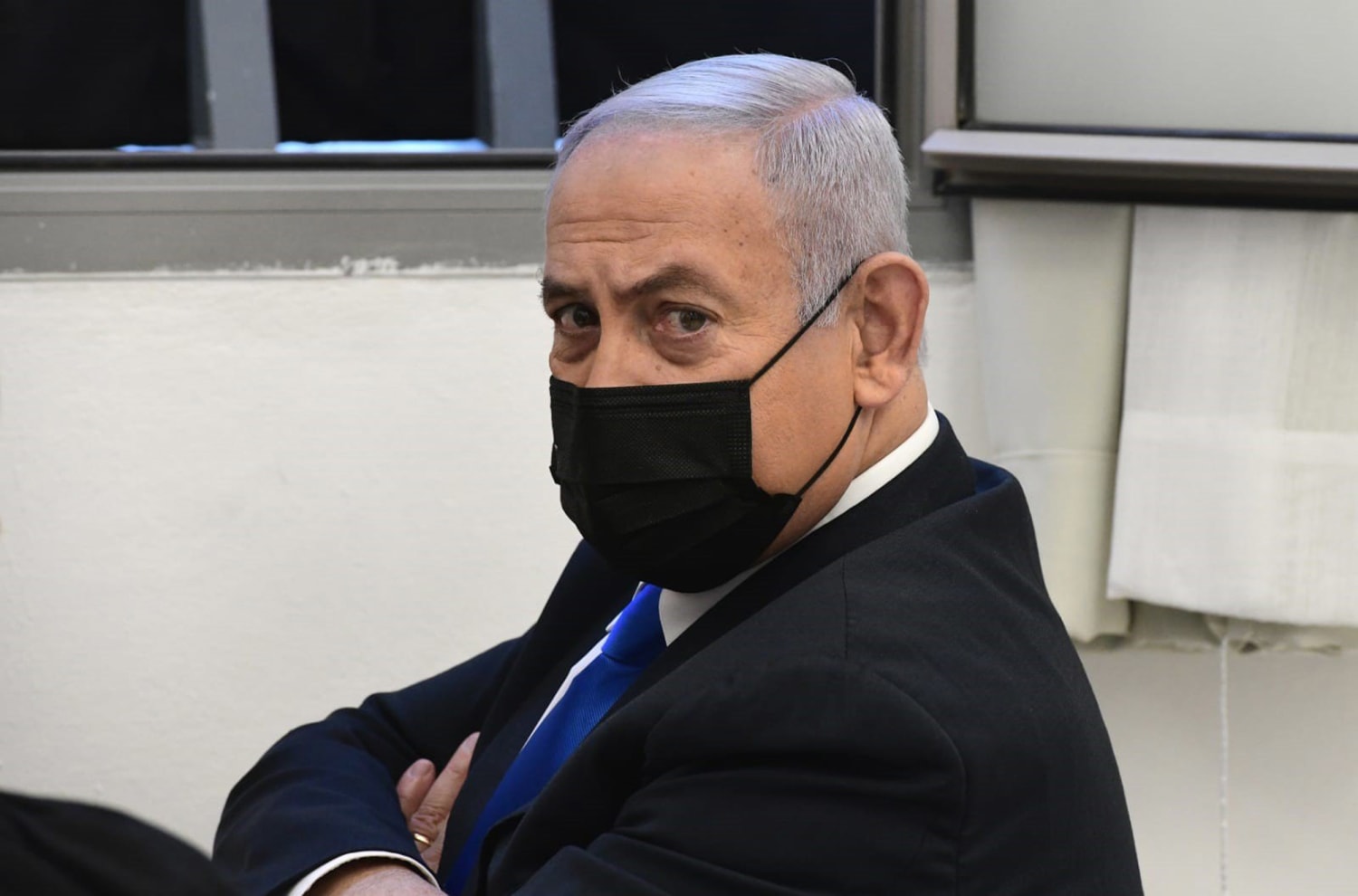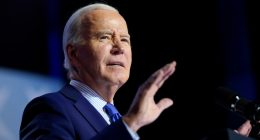JERUSALEM — Israeli Prime Minister Benjamin Netanyahu briefly appeared in a Jerusalem courtroom Monday to respond formally to corruption charges just weeks before national elections in which he hopes to extend his 12-year rule.
Netanyahu was indicted last year for fraud, breach of trust and accepting bribes in three separate cases. In recent months, Israelis have held weekly protests calling on him to resign over the charges and criticizing his government’s response to the coronavirus crisis. Protesters gathered outside the courthouse could be heard inside the room where the hearing was being held.
He stands accused of accepting lavish gifts from wealthy friends and offering to grant favors to powerful media moguls in exchange for favorable coverage of him and his family. The latest hearing was postponed last month due to lockdown restrictions on public gatherings.
Israel’s longest serving leader is also the first sitting prime minister to go on trial for corruption. Israeli law requires Cabinet ministers to resign when charged with criminal offenses, but does not specifically address the case of a prime minister under indictment.
Netanyahu has denied any wrongdoing and has dismissed the charges against him as a “witch-hunt” orchestrated by biased law enforcement and media. He has refused to step down and has used his office as a bully pulpit against critics and the criminal justice system.
At Monday’s hearing, Netanyahu submitted a written response to the allegations. His lawyer argued against the cases on procedural grounds, saying the attorney general had not properly approved the investigations. After around 20 minutes, Netanyahu left the courtroom without explanation and his motorcade departed. The hearing continued in his absence.
Download the NBC News app for breaking news and politics
At the start of his trial last May, Netanyahu was flanked by a cohort of Likud party allies as he railed against the media, police, judges and prosecutors. He said the trial aimed to “depose a strong, right-wing prime minister, and thus remove the nationalist camp from the leadership of the country for many years.”
Netanyahu has served as Israel’s prime minister since 2009, and in the past two years has managed to hang onto power through three tumultuous, deadlocked elections. His flimsy ruling coalition collapsed in December, and he now faces a major battle for reelection in March 23 parliamentary elections.
Netanyahu hopes to campaign on having pulled the country out of the pandemic through one of the world’s most successful vaccination campaigns. He boasts of having personally secured millions of doses from major drug makers, allowing Israel to vaccinated more than a third of its population of 9.3 million. He hopes to vaccinate the entire adult population by late March.
But his government has faced heavy criticism for other aspects of its response to the crisis. The country is only now starting to emerge from its third nationwide lockdown, and the closures have sent unemployment skyrocketing.
An emergency government formed last May to combat the coronavirus outbreak has been mired in bickering. The country’s leaders have struggled to enact consistent policies and repeatedly accused each other of playing politics with the pandemic. Israel has meanwhile reported nearly 700,000 cases since the outbreak began, including 5,121 deaths.
One major controversy concerns Israel’s ultra-Orthodox Jewish community, many of whom have openly flouted restrictions on public gatherings. Netanyahu will need the ultra-Orthodox parties to form a ruling coalition, and his critics accuse him of turning a blind eye to their violations.
Polls show Netanyahu’s Likud winning the most seats but struggling to form a 61-seat majority coalition in the Knesset, Israel’s parliament. The margin of victory could be extremely tight, potentially allowing a small, fringe party to decide who heads the next government.
Source: | This article originally belongs to Nbcnews.com


















